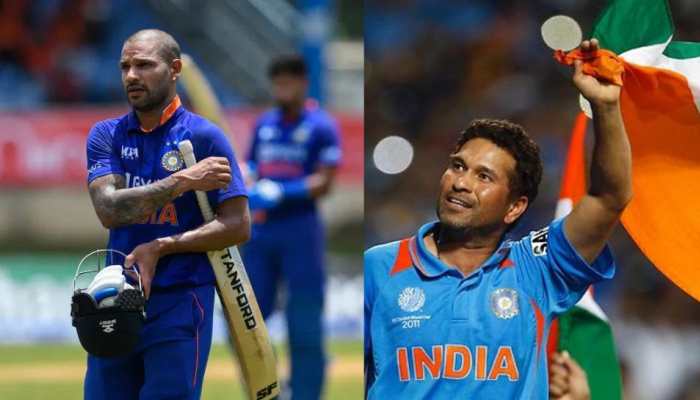Irrespective of marital status, every woman has right to say no to non-consensual sex: Delhi High Court
A bench of justices Rajiv Shakdher and C Hari Shankar said the exception from prosecution given to husbands under section 375 of the Indian Penal Code (IPC) has created a firewall and the court has to see if the firewall is violative of Articles 14 (equality before law) and 21 (protection of life and personal liberty) of the Constitution.
Trending Photos
) Pic for representational use only
Pic for representational use only New Delhi: The Delhi High Court on Tuesday wondered how the dignity of married and unmarried women can be differentiated and asserted that irrespective of marital status, every woman has the right to say 'no' to a non-consensual sexual act. The high court said the rationale and the thrust are that a relationship cannot be put on a different pedestal as a woman remains a woman.
“Just because she is married so she can take recourse of other civil and criminal laws and not under section 375 (rape) of the IPC if she is a victim of forcible sexual intercourse by her husband, is not alright,” it said.
The bench, while hearing a batch of petitions seeking criminalisation of marital rape, also asked, “Just because she is married, does she lose her right to say 'no'?" A bench of justices Rajiv Shakdher and C Hari Shankar said the exception from prosecution given to husbands under section 375 of the Indian Penal Code (IPC) has created a firewall and the court has to see if the firewall is violative of Articles 14 (equality before law) and 21 (protection of life and personal liberty) of the Constitution.
The bench said, "Is the firewall justifiable on the test of Articles 14 and 21. It is only that narrow aspect that we have to look into. To say that the wife can go and seek divorce if the husband imposes himself on her is not the issue here."
"Why is it so different from an unmarried woman? It affects an unmarried woman's dignity, but it does not affect the dignity of a married woman? How is it? What is the answer to this? Does she lose her right to say 'no'? Have 50 countries (which have made marital rape an offence) got it wrong?" it asked.
The bench did not appreciate the argument advanced by the Delhi government that a married woman has the remedy to divorce on the ground of cruelty under the personal laws and she can also register a criminal case against her husband under IPC section 498A (cruelty to married woman).
"The exception to section 375 does not violate the admitted right to privacy, dignity or the right to refuse sex in or out of marriage because there is no compulsion on a woman and she is not remediless,” the government's counsel Nandita Rao said.
The exception to the IPC section exempts sexual intercourse by a man with his own wife from the offence of rape, provided the wife is above 15 years of age.
While opposing the pleas to strike down the exception granted to husbands under the Indian rape law, the Delhi government counsel said the petitioners would have to show that this exemption compels a wife to cohabit with her husband and violates her dignity.
To this, Justice Shakdher said, “At least I find it difficult to appreciate that since she has other remedies, it is not violative of Article 21. Imagine a woman is on her menstrual cycle and she refused to have sex but the husband still forces himself and brutalises her. Isn't it an offence?”
Responding to it, Rao said, “it is an offence but not under the rape law.” “This is what we are testing here. For live-in partners, it is an offence under section 375 of IPC but not for married women. Why”, the judge asked, adding that ‘on the basis of a relationship, you cannot say it is alright.’
The court said, “You can show us the section but jurisdiction after jurisdiction, it has been held that merely because you are married, it is not good enough to say that it is not an offence."
"You are trying to persuade us that because she is married, she can take recourse of other laws, she can recourse to that but she cannot call him out for rape under Section 375 of the IPC, that is the sum and substance of your argument, correct” it said.
The bench said as long as these sexual acts are done with the joyful consent of the participating parties, it is not an offence. “The bedrock of a marriage is the joyous relationship between the two parties and the state cannot dictate them that they can do this and not that. There are several things which people do out of consent in a relationship,” it said.
The Delhi government counsel said if the court comes to a conclusion to strike down the exception, a new offence will have to be created and the constitutional scheme does not permit the judiciary to create a new offence as it does not have the machinery as that of the legislature.
To this, Justice Shankar said the court has the power to strike down the exception or a statutory provision if it finds it to be unconstitutional. “I am repeating this, this exception is a firewall and we are testing this firewall. Whether this firewall stands the test of constitutional scrutiny, it has to be seen,” Justice Shakdher said.
The court listed the matter for Wednesday for hearing further arguments. The bench was hearing PILs filed by NGOs RIT Foundation, All India Democratic Women's Association, a man and a woman seeking striking down of the exception granted to husbands under the Indian rape law.
Many pleas have also been filed by some men's right organisations which are opposing the petitions seeking to quash the exception. The central government, in its affidavit filed in the case, has said that marital rape cannot be made a criminal offence as it could become a phenomenon that may destabilise the institution of marriage and an easy tool for harassing the husbands.
The petitioner NGO has challenged the constitutionality of section 375 IPC on the ground that it discriminated against married women being sexually assaulted by their husbands.
Stay informed on all the latest news, real-time breaking news updates, and follow all the important headlines in india news and world News on Zee News.
Live Tv







)
)
)
)
)
)
)
)
)
)
